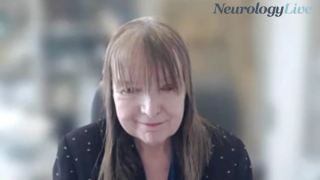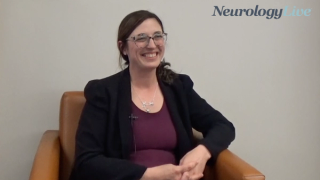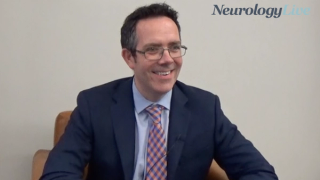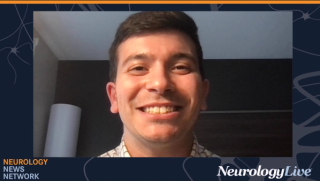
MS and Demyelinating Disorders
Latest News

Latest Videos

CME Content
More News

Test your neurology knowledge with NeurologyLive®'s weekly quiz series, featuring questions on a variety of clinical and historical neurology topics. This week's topic is on progressive multiple sclerosis.

This article reviews emerging MRI, OCT, CSF, and blood biomarkers, highlighting their potential roles in improving MS patient management and prognosis.

Mary Ann Picone, MD, FAAN, FACP, provides a summary of her time at the recently held 2024 CMSC Annual Meeting.

Take 5 minutes to catch up on NeurologyLive®'s highlights from the week ending July 19, 2024.

A recent study showed significant retinal damage in patients with double-antibody seronegative neuromyelitis optica spectrum disorders following optic neuritis.

Benjamin Greenberg, MD, a pediatric neurologist at the University of Texas Southwestern Medical Center, provided commentary on a recently initiated online program dedicated to empowering those affected by rare neuroimmune disorders.

A recent study identified limitations in the Expanded Disability Status Score scale's ability to capture full disability spectrum in neuromyelitis optica spectrum disorder and myelin oligodendrocyte glycoprotein-antibody-associated disease.

The assistant professor at Hunter College talked about how to effectively diagnose and treat multiple sclerosis through localization and active listening of the patient's history and symptoms. [WATCH TIME: 7 minutes]

The associate vice president of research at National MS Society talked about proactive and early referral to rehabilitation services to effectively manage multiple sclerosis symptoms from the outset. [WATCH TIME: 4 minutes]

Here's some of what is coming soon to NeurologyLive® this week.

Apheresis Therapy Outperforms Intravenous Methylprednisolone in Long-Term Treatment of NMOSD Attacks
Intravenous methylprednisolone combined with plasma exchange/immunoadsorption achieved better and continuous improvement than IVMP alone

Test your neurology knowledge with NeurologyLive®'s weekly quiz series, featuring questions on a variety of clinical and historical neurology topics. This week's topic is on multiple system atrophy.

Take 5 minutes to catch up on NeurologyLive®'s highlights from the week ending July 12, 2024.

In the final episode, Negroski gave closing thoughts on some of the major unmet needs in research regarding aging in MS, as well as some of the unanswered questions clinicians are still trying to figure out.

Donald Negroski, MD, gave an overview of a study that highlighted an accelerated biologic aging clock among patients with pediatric-onset MS.

As part of our monthly clinician spotlight, NeurologyLive® highlighted multiple sclerosis expert Marisa McGinley, DO, the staff neurologist at Cleveland Clinic’s Mellen Center for MS.

Catch up on any of the neurology news headlines you may have missed over the course of June 2024, compiled all into one place by the NeurologyLive® team.

Here's some of what is coming soon to NeurologyLive® this week.

Test your neurology knowledge with NeurologyLive®'s weekly quiz series, featuring questions on a variety of clinical and historical neurology topics. This week's topic is on headache and nerve decompression surgery.

Take 5 minutes to catch up on NeurologyLive®'s highlights from the week ending July 5, 2024.

Bryant Robinson, senior manager of government relations at the National MS Society, discussed how telehealth access has become vital for patients with multiple sclerosis who often lack nearby specialist care.

After 48 weeks of continued treatment, those in the high-dose frexalimab group showed a 41% reduction in neurofilament light.

Data from the large-scale, phase 3 OCARINA 2 trial was the basis for the approval.

Negroski detailed a real-world analysis on cladribine, an FDA-approved DMT, in an aging population of MS, and the recent increase in research for older populations with the disease.

In this episode, Negroski gave insight on the impact of health care-related social determinants of health, their impact on brain structure and aging in MS, and where efforts should be directed towards going forward.


















